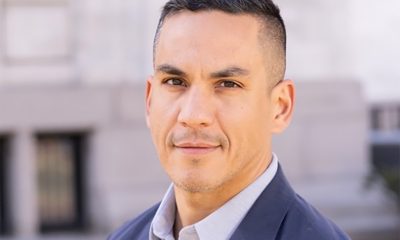News
Andy Vélez, a seminal New York AIDS and Latino Queer activist dies at 80
His advocacy work improved drug access and civil rights for people living with HIV
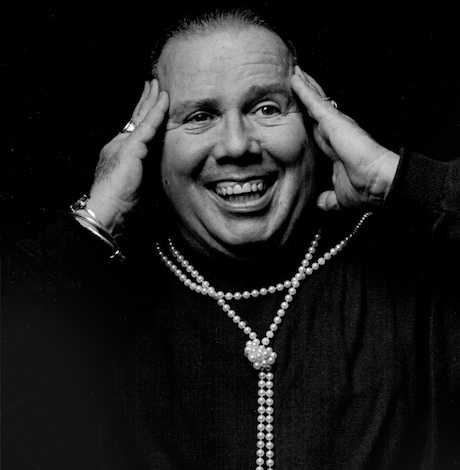
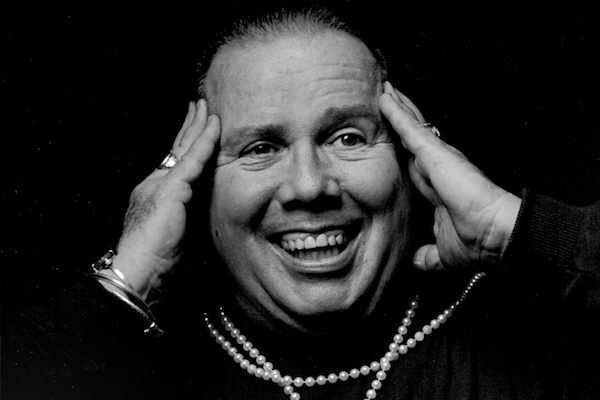
Andy Vélez, an internationally prominent AIDS activist, whose three decades of advocacy work resulted in improved drug access and civil rights for people living with HIV, especially in the Latino community, died on May 14, 2019 at Mt. Sinai Beth Israel Hospital in Manhattan. He was 80.
His sons Ben and Abe Vélez said the cause of death was complications arising from a severe fall in his Greenwich Village building in April.
Until his recent accident and despite several health challenges, Vélez had remained consistently active in the AIDS and social justice communities, taking part in protests for ACT UP and Rise and Resist. Vélez was a seminal member of ACT UP, joining the group in 1987, its first year of activity, and played a prominent role in its most notorious demonstrations over the past 32 years.
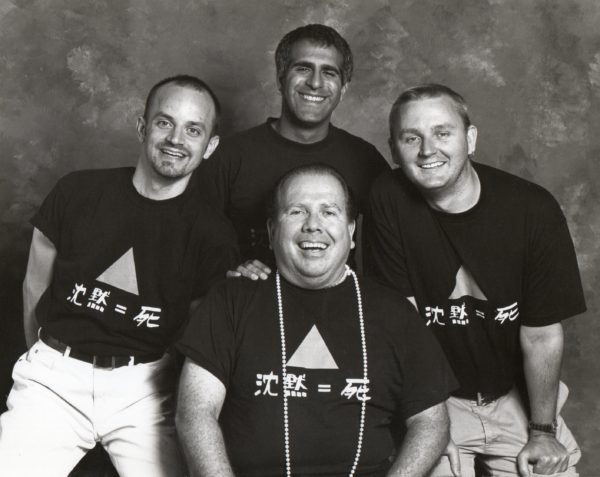
Vélez was born on March 9, 1939 in the Bronx to Ramon Vélez and the former Dorothy Solomon. The family, including siblings Eugene and Raymond (“Al”), soon relocated to Aguadilla, Puerto Rico, where they lived a few years before returning to the Bronx. Vélez graduated from William Howard Taft High School in 1955 at age 16. He attended City College for a brief time, but interrupted his studies when he left home. Years later, after attending night school, Vélez would formally graduate.
Vélez earned a Master’s degree in psychoanalysis in 1976 and worked with the Center for Modern Psychoanalytic Studies under Dr. Phyllis Meadow in the Village. He maintained his own therapy practice for two decades. Vélez had initially explored psychoanalysis for personal reasons, suspecting that he was homosexual. In 1964, he was entrapped by an undercover policeman in a Park Avenue South bar. Vélez spent the night in the jail facility known as The Tombs, a traumatizing experience that would provide the impetus for his activism. Vélez lost his position at the Housing Authority when his boss learned of his arrest. He received a suspended sentence of six months. But when Vélez pushed back legally with the help of a progressive lawyer, his conviction was later reversed.
While he initially hoped to become an actor, and appeared in several off-Broadway productions in the late 1950s and early 1960s, Vélez found success in other careers. He entered book publishing in 1969. Over the course of 16 years he worked his way up to the position of president of the prominent Frederick Ungar Publishing, managing the company until it was sold in 1985. Notable among his literary projects was a 1984 collaboration with screen star Marlene Dietrich to update her 1962 bestseller Marlene Dietrich’s ABC.
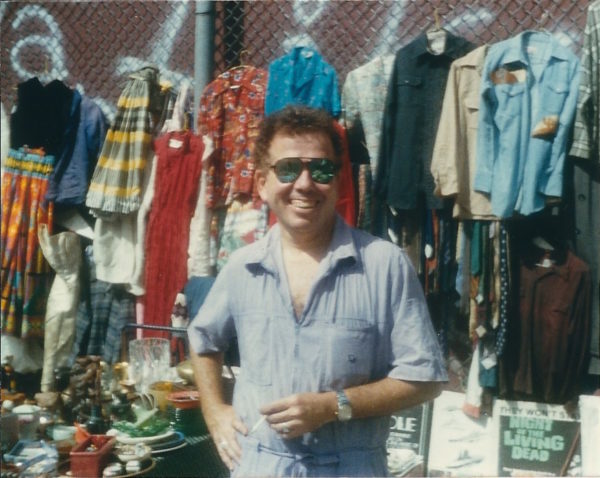
Once he was divorced, Vélez began to make active connections with the LGBTQ community. He served as a leader for the Gay Circles Consciousness Raising Group for almost three years. One evening, after his group ended, Vélez walked past the first meeting of a new organization dedicated to addressing government inaction surrounding HIV/AIDS. He was intrigued.
The group soon had a name: ACT UP, the AIDS Coalition to Unleash Power. Vélez became involved in several ACT UP committees, including the Media Committee and Actions Committee. He was involved in high-profile demonstrations and civil disobedience arrest scenarios that showcased ACT UP’s signature street theatre activism, such as chaining himself in the office of a pharmaceutical company, or covering himself in fake blood to symbolize the lives lost to AIDS because of government negligence.
However, Vélez found his niche with the group’s Latino Caucus, which focused on the raging but neglected epidemic in the Latino community. Significantly, Vélez and his colleagues traveled to Puerto Rico to help organize a local ACT UP chapter in the commonwealth. He was also a founding member of Queer Nation in New York City in 1990.
He was involved in many AIDS educational and service organizations over the years, serving as an administrator and bilingual educator for AIDSMEDS.com for more than a decade. His writing and activism intersected significantly when he moderated a community forum on AIDSMeds.com, where he directed desperate people to lifesaving medical information. Vélez also wrote about the epidemic for numerous community publications, including POZ, Body Positive, and SIDA Ahora. For ten years he moderated the POZ Forum. He took part in aggressive and effective treatment access work with Treatment Action Group, and worked in a New York City HIV clinical trial unit, alerting affected communities to their vulnerability to tuberculosis.
From the 1990s through the 2010s, Vélez returned to his first love of theater by covering the scene for several LGBT magazines, as well as by conducting interviews with jazz greats for All About Jazz and the New York City Jazz Record. He penned liner notes for the CD reissues of several Broadway musical classics, such as Finian’s Rainbow, The Pajama Game, and Saratoga. He also provided liner notes for vocal collections by legends such as Doris Day, Fred Astaire, Ella Fitzgerald, and Artie Shaw. From 1990 to 1992, he taught courses in musical theater at the New School. Among his in-class guests from the golden age of Broadway: Barbara Cook, Sheldon Harnick, Elaine Stritch, John Kander and Fred Ebb. He was included in the anthology Cast Out: Queer Lives in the Theater, a collection focusing on out lesbians and gays currently working on the American stage.
Vélez became a prominent presence on the international AIDS scene for more than two decades, working with co-organizers of the International Conference on AIDS to guarantee the inclusion and active participation of people with HIV. He also served for several conferences as the official liaison to the activist community. He served as a consultant to the Latino Commission on AIDS, and was a guest speaker on HIV/AIDS issues at high schools and colleges across America.
Years ago, when asked how he would like to be remembered, Vélez replied, “As someone who was able to help.”
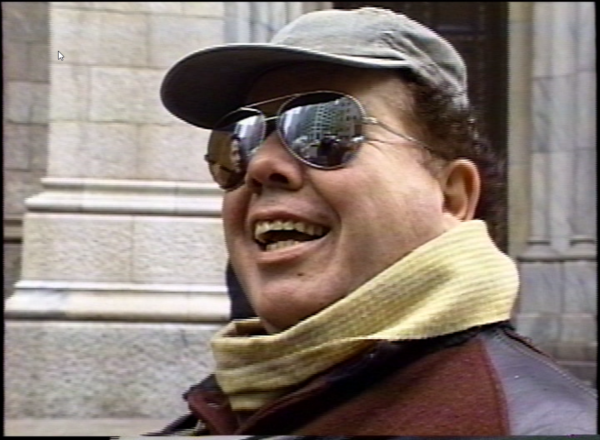
Andy Vélez is survived by his sons Ben and Abe, both of Brooklyn, his daughter-in-law Sarah, his granddaughter, his younger brother Eugene (“Gene’) of Alamo, California, as well as thousands of comrades in the global AIDS and LGBTQ activist communities.
Funeral services will be private. A public memorial service will be held this summer.
Donations in Vélez’s memory may be made to ACT UP New York, Broadway Cares/Equity Fights AIDS, and the Latino Commission on AIDS.
Andy Vélez, presente y pa’lante!
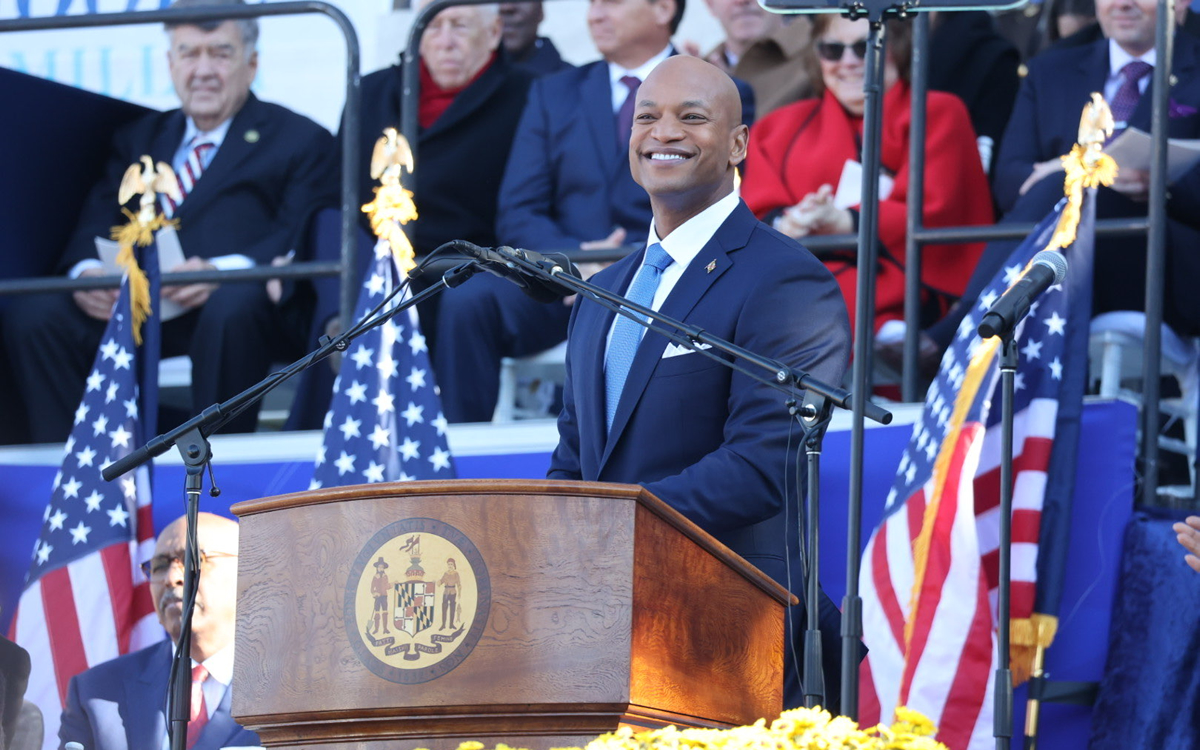
Maryland Gov. Wes Moore on Thursday signed a bill that seeks to combat efforts to ban books from state libraries.
House Bill 785, also known as the Freedom to Read Act, would establish a state policy “that local school systems operate their school library media programs consistent with certain standards; requiring each local school system to develop a policy and procedures to review objections to materials in a school library media program; prohibiting a county board of education from dismissing, demoting, suspending, disciplining, reassigning, transferring, or otherwise retaliating against certain school library media program personnel for performing their job duties consistent with certain standards.”
Moore on Thursday also signed House Bill 1386, which GLSEN notes will “develop guidelines for an anti-bias training program for school employees.”

The Mexican Senate on Thursday approved a bill that would ban so-called conversion therapy in the country.
Yaaj México, a Mexican LGBTQ rights group, on X noted the measure passed by a 77-4 vote margin with 15 abstentions. The Chamber of Deputies, the lower house of Mexico’s congress, approved the bill last month that, among other things, would subject conversion therapy practitioners to between two and six years in prison and fines.
The Senate on its X account described conversion therapy as “practices that have incentivized the violation of human rights of the LGBTTTIQ+ community.”
“The Senate moved (to) sanction therapies that impede or annul a person’s orientation or gender identity,” it said. “There are aggravating factors when the practices are done to minors, older adults and people with disabilities.”
Mexico City and the states of Oaxaca, Quintana Roo, Jalisco and Sonora are among the Mexican jurisdictions that have banned the discredited practice.
The Senate in 2022 passed a conversion therapy ban bill, but the House of Deputies did not approve it. It is not immediately clear whether President Andrés Manuel López Obrador supports the ban.
Canada, Brazil, Belgium, Germany, France, and New Zealand are among the countries that ban conversion therapy. Virginia, California, and D.C. are among the U.S. jurisdictions that prohibit the practice for minors.
The White House
Four states to ignore new Title IX rules protecting transgender students
Biden administration last Friday released final regulations

BY ERIN REED | Last Friday, the Biden administration released its final Title IX rules, which include protections for LGBTQ students by clarifying that Title IX forbids discrimination based on sexual orientation and gender identity.
The rule change could have a significant impact as it would supersede bathroom bans and other discriminatory policies that have become increasingly common in Republican states within the U.S.
As of Thursday morning, however, officials in at least four states — Oklahoma, Louisiana, Florida, and South Carolina — have directed schools to ignore the regulations, potentially setting up a federal showdown that may ultimately end up in a protracted court battle in the lead-up to the 2024 elections.
Louisiana State Superintendent of Education Cade Brumley was the first to respond, decrying the fact that the new Title IX regulations could block teachers and other students from exercising what has been dubbed by some a “right to bully” transgender students by using their old names and pronouns intentionally.
Asserting that Title IX law does not protect trans and queer students, Brumley states that schools “should not alter policies or procedures at this time.” Critically, several courts have ruled that trans and queer students are protected by Title IX, including the 4th U.S. Circuit Court of Appeals in a recent case in West Virginia.
In South Carolina, Schools Supt. Ellen Weaver wrote in a letter that providing protections for trans and LGBTQ students under Title IX “would rescind 50 years of progress and equality of opportunity by putting girls and women at a disadvantage in the educational arena,” apparently leaving trans kids out of her definition of those who deserve progress and equality of opportunity.
She then directed schools to ignore the new directive while waiting for court challenges. While South Carolina does not have a bathroom ban or statewide “Don’t Say Gay or Trans” law, such bills continue to be proposed in the state.
Responding to the South Carolina letter, Chase Glenn of Alliance For Full Acceptance stated, “While Supt. Weaver may not personally support the rights of LGBTQ+ students, she has the responsibility as the top school leader in our state to ensure that all students have equal rights and protections, and a safe place to learn and be themselves. The flagrant disregard shown for the Title IX rule tells me that our superintendent unfortunately does not have the best interests of all students in mind.”
Florida Education Commissioner Manny Diaz also joined in instructing schools not to implement Title IX regulations. In a letter issued to area schools, Diaz stated that the new Title IX regulations were tantamount to “gaslighting the country into believing that biological sex no longer has any meaning.”
Governor Ron DeSantis approved of the letter and stated that Florida “will not comply.” Florida has notably been the site of some of the most viciously anti-queer and anti-trans legislation in recent history, including a “Don’t Say Gay or Trans” law that was used to force a trans female teacher to go by “Mr.”
State Education Supt. Ryan Walters of Oklahoma was the latest to echo similar sentiments. Walters has recently appointed the right-wing media figure Chaya Raichik of Libs of TikTok to an advisory role “to improve school safety,” and notably, Raichik has posed proudly with papers accusing her of instigating bomb threats with her incendiary posts about LGBTQ people in classrooms.
The Title IX policies have been universally applauded by large LGBTQ rights organizations in the U.S. Lambda Legal, a key figure in fighting anti-LGBTQ legislation nationwide, said that the regulations “clearly cover LGBTQ+ students, as well as survivors and pregnant and parenting students across race and gender identity.” The Human Rights Campaign also praised the rule, stating, “rule will be life-changing for so many LGBTQ+ youth and help ensure LGBTQ+ students can receive the same educational experience as their peers: Going to dances, safely using the restroom, and writing stories that tell the truth about their own lives.”
The rule is slated to go into effect Aug. 1, pending any legal challenges.
****************************************************************************

Erin Reed is a transgender woman (she/her pronouns) and researcher who tracks anti-LGBTQ+ legislation around the world and helps people become better advocates for their queer family, friends, colleagues, and community. Reed also is a social media consultant and public speaker.
******************************************************************************************
The preceding article was first published at Erin In The Morning and is republished with permission.
-

 State Department4 days ago
State Department4 days agoState Department releases annual human rights report
-

 District of Columbia2 days ago
District of Columbia2 days agoCatching up with the asexuals and aromantics of D.C.
-

 South America2 days ago
South America2 days agoArgentina government dismisses transgender public sector employees
-

 Maine3 days ago
Maine3 days agoMaine governor signs transgender, abortion sanctuary bill into law





